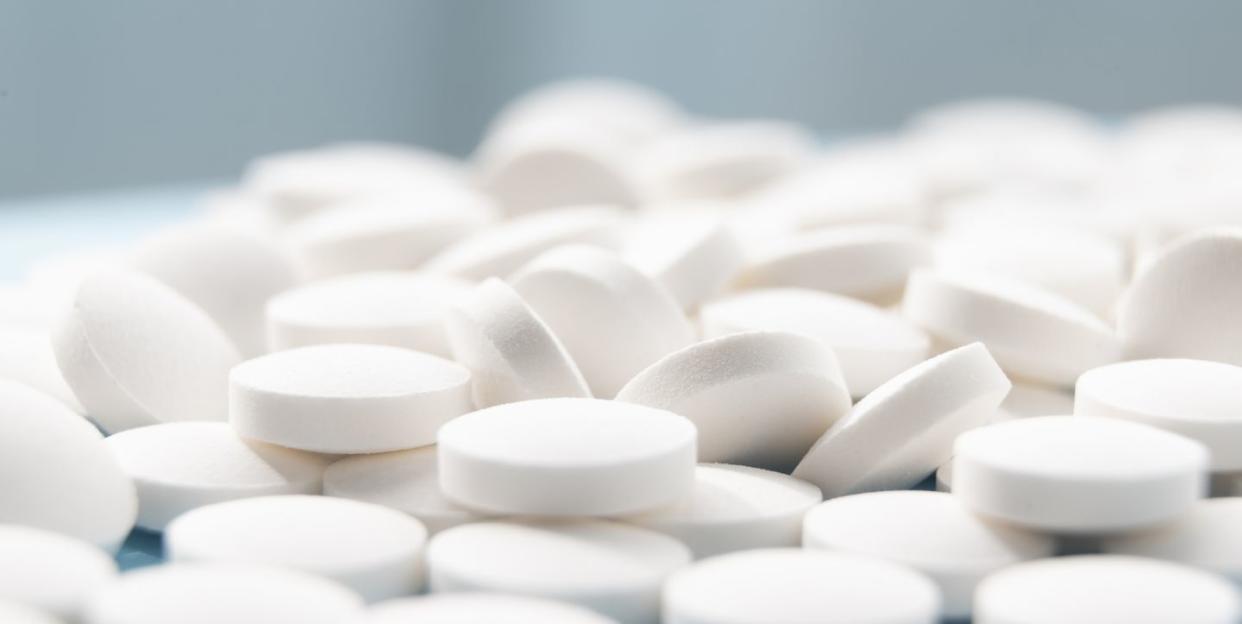Zinc Can Offer Much More Health Benefits Than Just an Immunity Boost

"Hearst Magazines and Yahoo may earn commission or revenue on some items through the links below."
It can be hard to keep track of every vitamin you need in your diet, but zinc is one that you should be sure to get enough of. An essential nutrient most well-known for helping your immune system, not having enough zinc in your diet could make the difference between regular immune functioning and poor wound healing.
We spoke with Jackie Newgent, R.D.N., C.D.N., plant-forward chef, culinary nutritionist, and author of The Clean & Simple Diabetes Cookbook, to give you all the expert insight on the benefits of zinc and where to find the most of it in your food.
What is zinc?
Zinc is an essential mineral needed for healthy growth, says Newgent. “It plays a key role in immune functioning and wound healing.” According to the National Institute of Health (NIH), the recommended daily amount of zinc is 11 milligrams for adult men and 8 milligrams for adult women. A higher intake of zinc, closer to 11-12 milligrams, is recommended for pregnant and breastfeeding women.
What are the health benefits of zinc?
Immune system and wound healing
The body’s immune system needs zinc to do its job. Studies have shown that zinc is crucial for normal development and function of cells mediating natural immunity. “Zinc may help to reduce the severity and duration of the common cold,” says Newgent. Some studies suggest that zinc lozenges or syrup help speed recovery from the common cold if you start taking them within 1 to 3 days of coming down with a cold. However, according to the NIH, more study is needed to determine the best dose and form of zinc, as well as how often and how long it should be taken before zinc can be recommended as a treatment for the common cold.
Zinc also helps your skin stay healthy. Skin is in a continual state of renewal, placing a high demand on zinc-based enzymes and proteins that direct this process. Research has found that the importance of zinc is especially evident in wound healing and inflammation reduction.
Diarrhea
Diarrhea can cause dehydration, which can be life-threatening if untreated. Studies have shown that zinc dietary supplements help reduce the symptoms and duration of diarrhea in children of developing countries, many of whom are zinc deficient or otherwise malnourished. The World Health Organization and UNICEF recommend that children with diarrhea (in cases of suspected malnutrition) take zinc for 10–14 days (20 mg/day, or 10 mg/day for infants under 6 months). However, it is not clear whether zinc dietary supplements can help treat diarrhea in children who get enough zinc, such as most children in the United States, so be sure to consult with your doctor before self-prescribing zinc supplements.
Age-related macular degeneration (AMD)
Age-related macular degeneration (AMD) is an eye disease that gradually causes vision loss. Research suggests that zinc might help slow AMD progression. If you have or are developing the disease, you might want to talk with your doctor about taking dietary zinc supplements.
What happens if you become zinc-deficient?
“Zinc deficiency can manifest itself in many ways,” says Newgent. These may include reproductive issues, interference with your sense of taste, and poor wound healing. In developing countries where zinc deficiencies are more common, children may experience slowed growth, including delayed sexual development as well as impotence in men.
According to the NIH, zinc deficiency can also cause hair loss, diarrhea, eye and skin sores and loss of appetite. Weight loss, problems with wound healing, decreased ability to taste food, and lower alertness levels can also occur.
Are there any side effects of over-consuming zinc?
Yes, if you get too much zinc in your diet, it could be too much of a good thing fast.
“Too much zinc can cause headaches, dizziness, nausea or vomiting, stomach distress and poor appetite, says Newgent. She adds that “excess zinc over time can interfere with absorption of copper and magnesium—and may have the opposite effect of what you wish, like a negative impact on immune functioning.”All the more reason to check with your doctor before self-diagnosing with any supplements.
What are some foods that are rich in zinc?
The best way to get more zinc in your diet is through zinc-rich foods, as opposed to adding another supplement to your regimen.
Newgent, culinary nutritionist, says the following plant foods offer a significant amount of zinc:
Pulses (beans, chickpeas, and lentils)
Nuts
Seeds
Mushrooms
Tofu
Avocados
If you’re feeling anxious about getting more zinc into your diet as soon as your next meal, try these Tofu, Lentil, and Swiss Chard tacos on for size!
Dietary supplements are products intended to supplement the diet. They are not medicines and are not intended to treat, diagnose, mitigate, prevent, or cure diseases. Be cautious about taking dietary supplements if you are pregnant or nursing. Also, be careful about giving supplements to a child, unless recommended by their healthcare provider.
You Might Also Like

